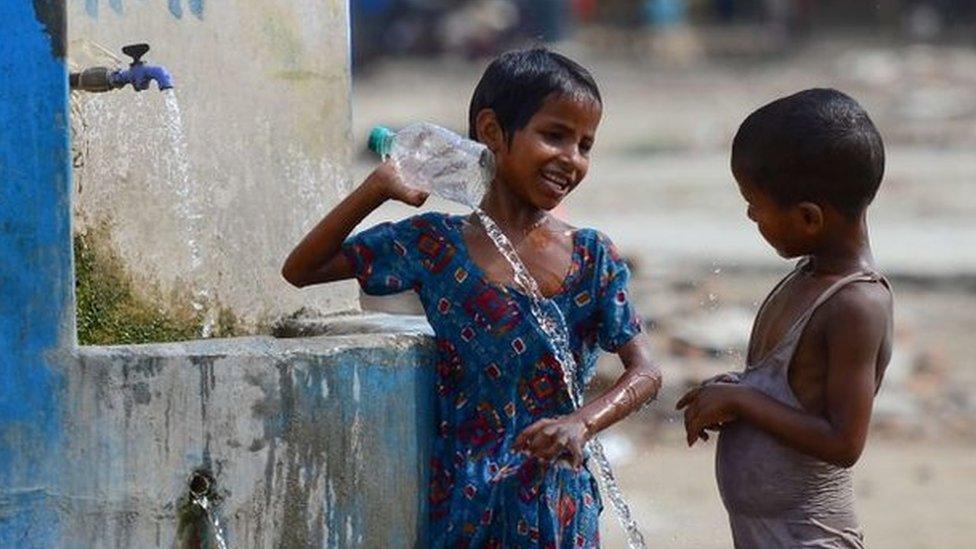Extreme weather grabs global media headlines
- Published
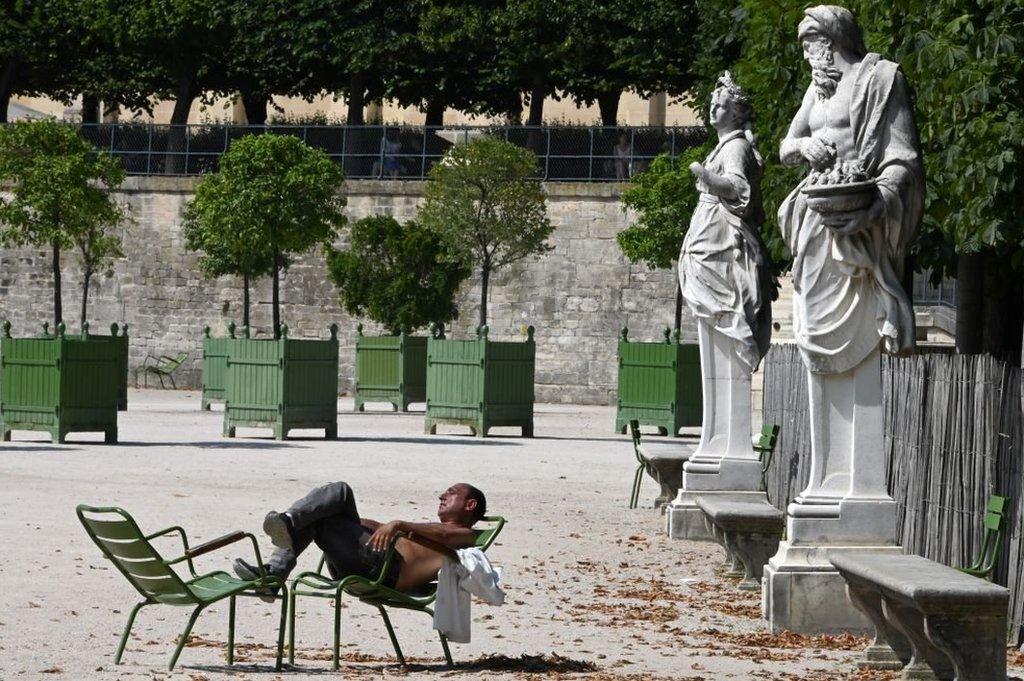
Hot air sweeping in from northern Africa could see temperatures in Europe hit record highs
Extreme weather events round the world mean the topic has been top of the news agenda in several countries in 2019. Here's how it's been talked about.
A current heatwave in European countries has seen Germany, Poland and the Czech Republic record their highest temperatures for June while temperatures climb above 40C (104F) in places like France and Spain.
Newspaper headlines have described this in rather apocalyptic language. "Hell is coming!" warned the Czech newspaper Lidove Noviny.
In Spain, TeleCinco TV reckoned it was already in provinces where record temperatures were reached: "Hell on Earth" it called them.
Public broadcaster RTVE referred to an "infernal" wave and the Polish Gazeta Wyborcza daily spoke of "weather on steroids".
In France, some stories focused on the suitability of the country's infrastructure. L'Obs weekly magazine compared a commuter train ride to "a moving hammam" and a story in the daily Le Parisien said big cities had become "such isles of heat that they will have to be completely rethought".
Meteorologist Ruben Hallali compared a forecast map to Edvard Munch's painting, The Scream:
Allow X content?
This article contains content provided by X. We ask for your permission before anything is loaded, as they may be using cookies and other technologies. You may want to read X’s cookie policy, external and privacy policy, external before accepting. To view this content choose ‘accept and continue’.

The weather has also melted Sweden's highest point. The southern peak of the Kebnekaise massif is crowned by a glacier that is measured every August.
It has diminished by almost a metre (3.2ft) each year since 1995, and last year, it finally dropped below Kebnekaise's northern peak, which is made of solid rock.
"The situation was stable until the early 1980s, but now there are big changes every year," glaciologist Per Holmlund told Swedish TV.
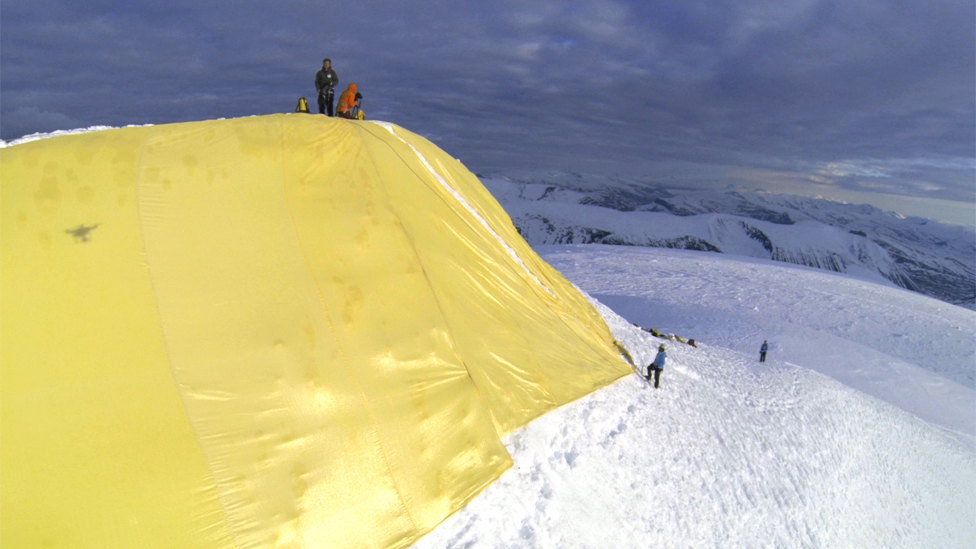
Swedish artists Bigert & Bergstrom placed a rescue blanket on the peak in 2015 as part of a performance
Unprecedented floods in Iran
In late March and early April, severe floods in Iran killed at least 76 people and displaced more than 360,000. The floods caused over $2bn (£1.5bn) in damages.
Iran's Meteorological Organisation head Sahar Tajbakhsh said they were the result of climate change and global warming.

The city of Poldokhtar in Lorestan Province was among those worst hit by flooding
But Iran's media did not link the floods to climate change.
Reporting has focused more on what the government should have done to reduce the damage. On social media, Iranians blamed the government's poor management for the extent of it.
State TV and radio prioritised reporting the benefits of the heavy rainfall, with frequent stories on the apparent restoration of lakes and wetlands, and occasional interviews with farmers looking forward to a boom in crop yields.
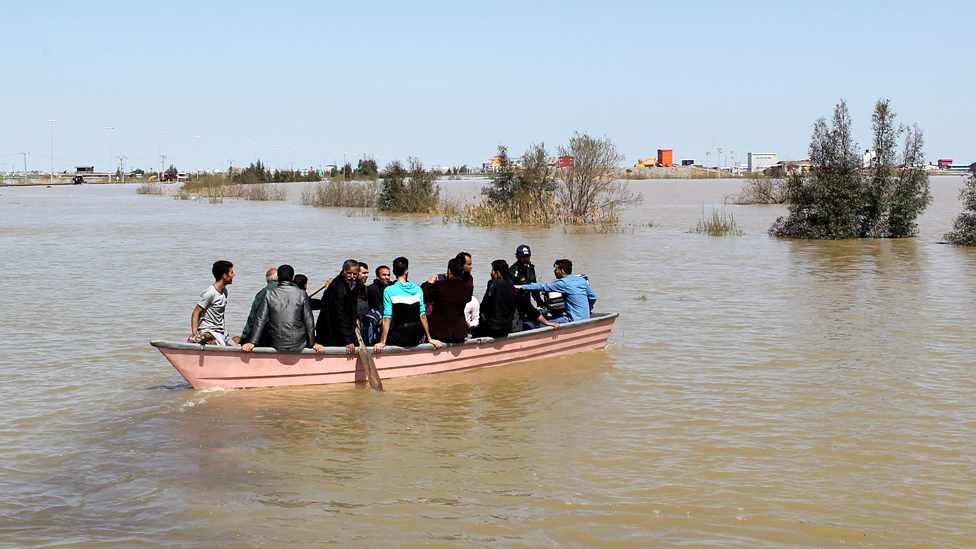
In some cases, entire villages were submerged
Hardline conservative politicians in Iran are vehemently opposed to the Paris Agreement and want Iran to pull out of the deal. They argue that Iran, an energy-rich country, stands to lose significant oil and gas revenue by agreeing to reduce its carbon emissions.
Acute water shortages in India
Heatwaves are routine during India's summer, but the country has just experienced its second longest on record. The spell of 32 days saw temperatures reach above 45C in several parts of the country through much of June.
The heatwave, coupled with delayed monsoon rains, depleted water supplies and led to crises in many parts of the country.
Earlier this month, India's sixth biggest city, Chennai (Madras), ran out of water - an extraordinary event that was given major coverage.
Commentaries in a few big dailies have blamed the federal and local governments for aggravating the water shortage in Tamil Nadu - the state Chennai is capital of - and urged them to work together to preserve water.
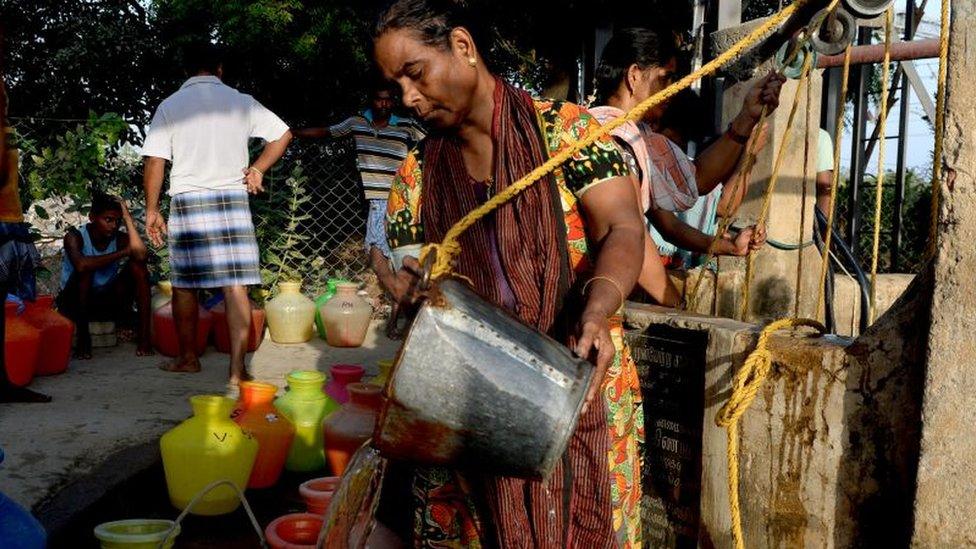
The drought is the worst in living memory in Chennai
"What is needed is a political compact between the centre and states to jointly address the challenges of saving India's water," said an editorial in The Indian Express, external.
"India is acknowledged to be at ground zero of the global warming challenge," warned another in the Hindustan Times, external.
"Not only is our country the third largest producer of greenhouse gases, and, therefore, a significant contributor to the problem, it is also expected to be one of the major victims of global warming."
Displacing the displaced
In the Middle East, some of the most vulnerable communities - people displaced from their homes by violence - have been affected by extreme weather.
In Yemen in June, over 4,500 families were forced from their homes by heavy rains and flooding in various parts of the country, including Aden - "a new crisis to add to the host of crises", Belqees TV said.
This included 1,500 living in camps for the displaced. The head of a unit responsible for managing the camps warned of an "environmental disaster and the spread of diseases".
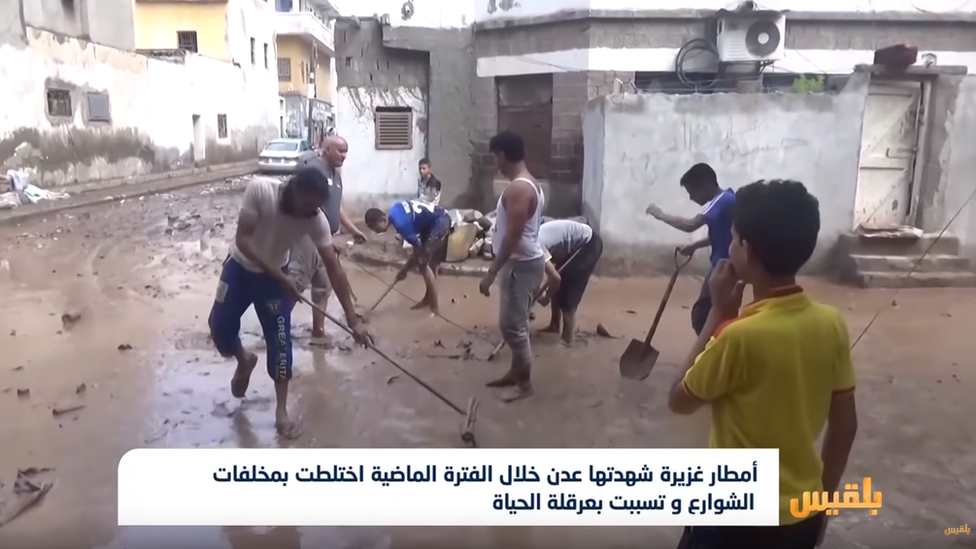
Over 80,000 people in Yemen have been affected by rain and floods, the International Organization for Migration says
The situation was similar when unusually heavy snowstorms hit several countries in the Middle East and North Africa in January.
Snowstorm Norma "paralysed" parts of Lebanon, al-Jadeed TV reported.
The pan-Arab channel al-Arabiya said Syrian refugee camps in the Bekaa Valley had been swamped by floods, and the Lebanese National News Agency reported that three refugee camps in the town of Samaqiyah had been swept by flash floods.
BBC Monitoring, external reports and analyses news from TV, radio, web and print media around the world. You can follow BBC Monitoring on Twitter, external and Facebook, external.
- Published27 June 2019
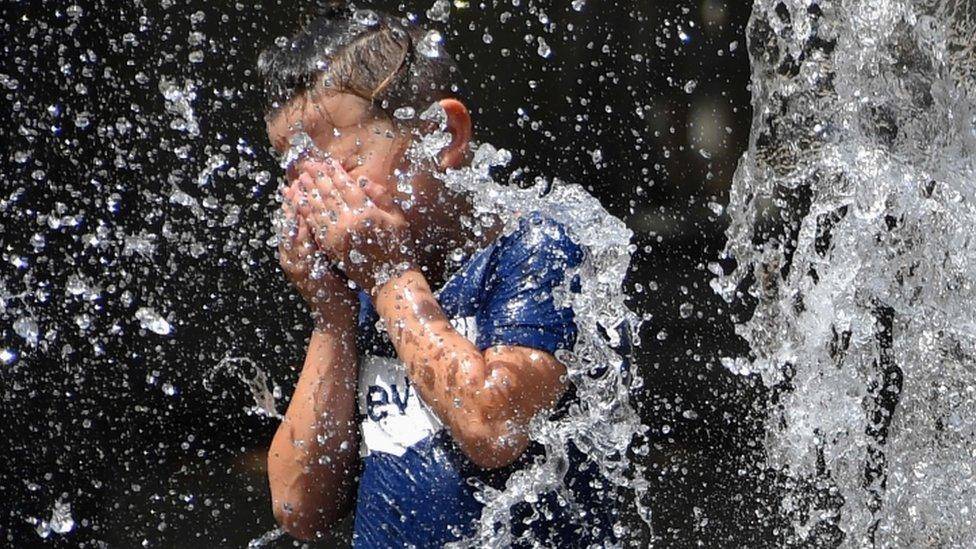
- Published27 June 2019
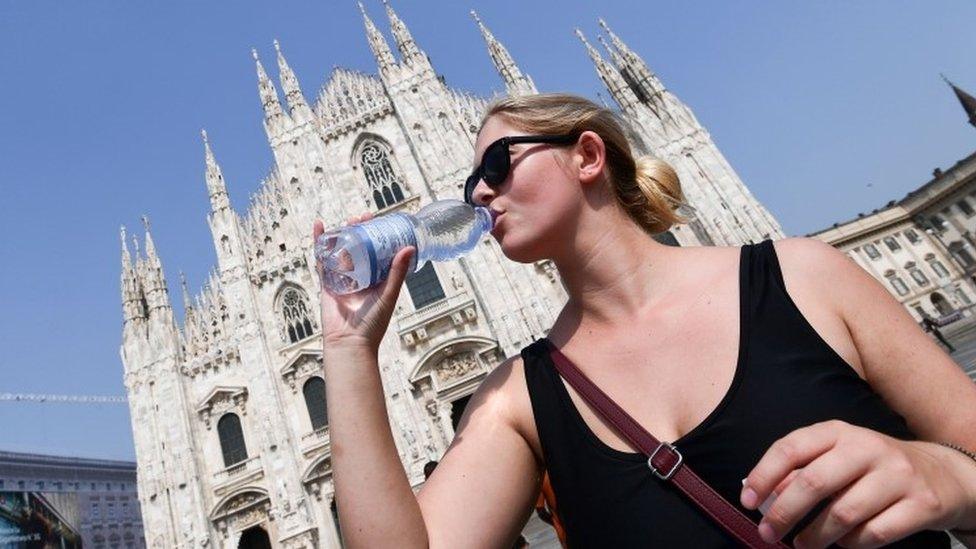
- Published25 July 2019
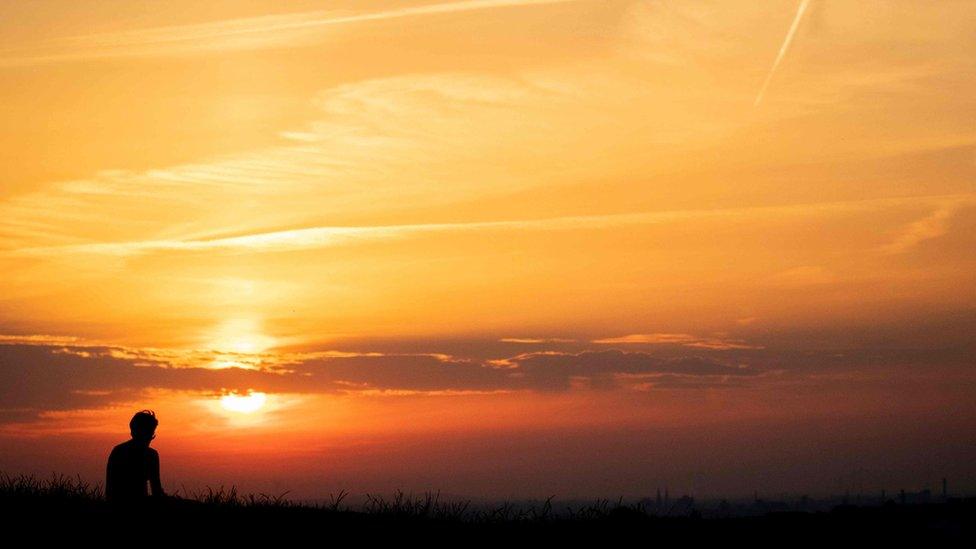
- Published5 April 2019
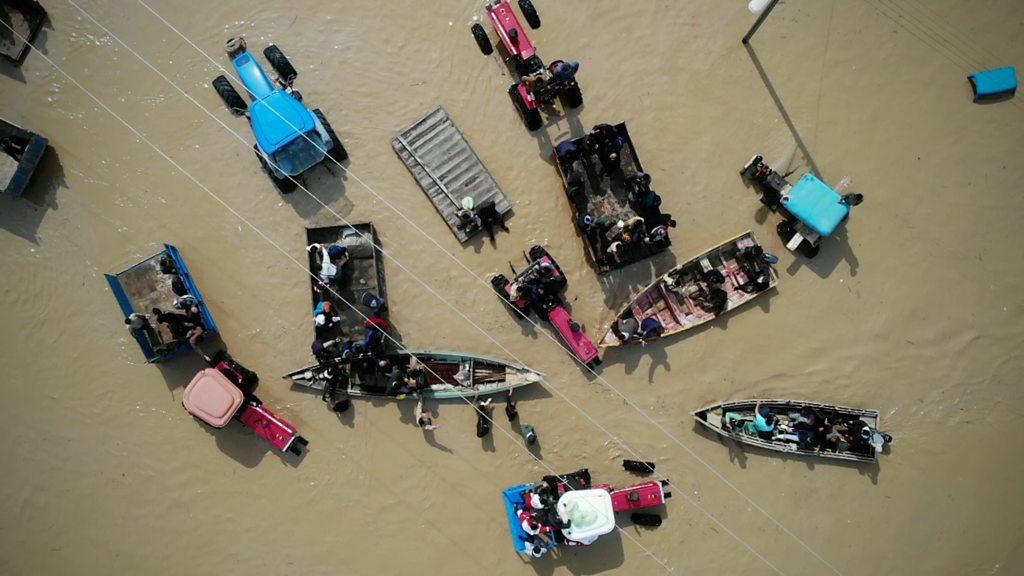
- Published3 June 2019
